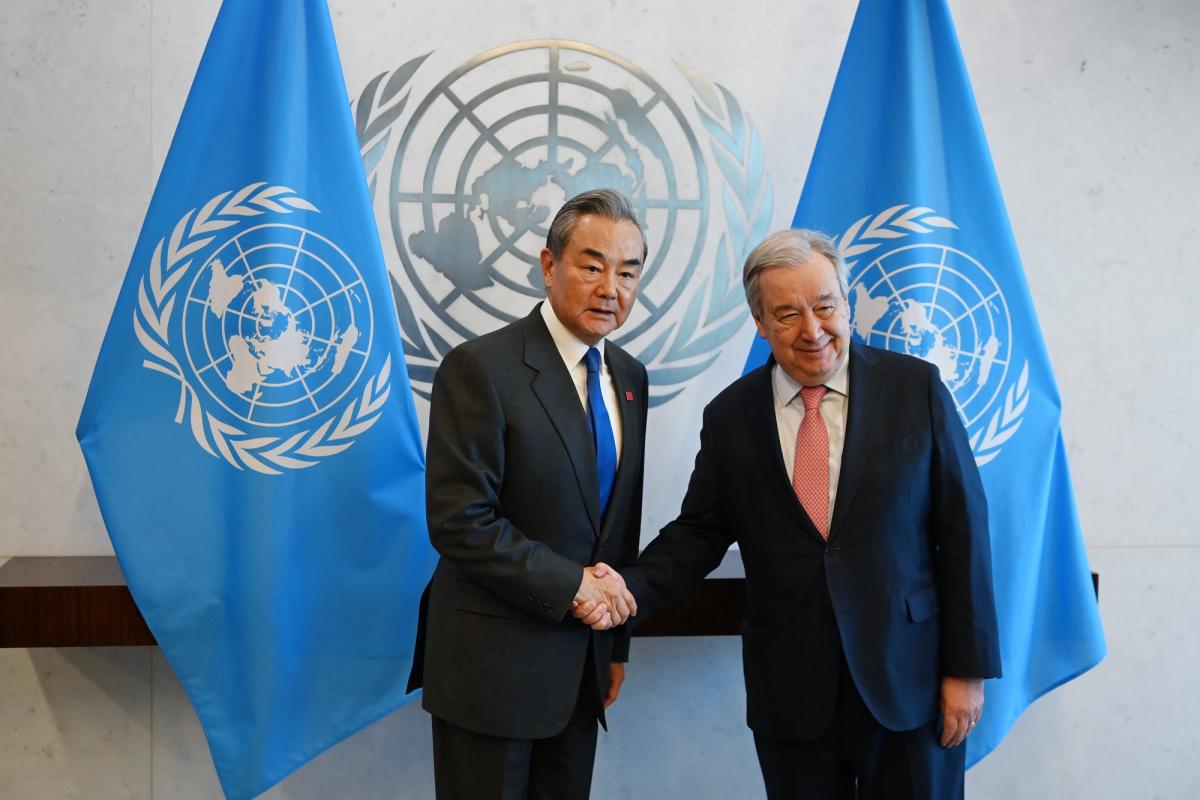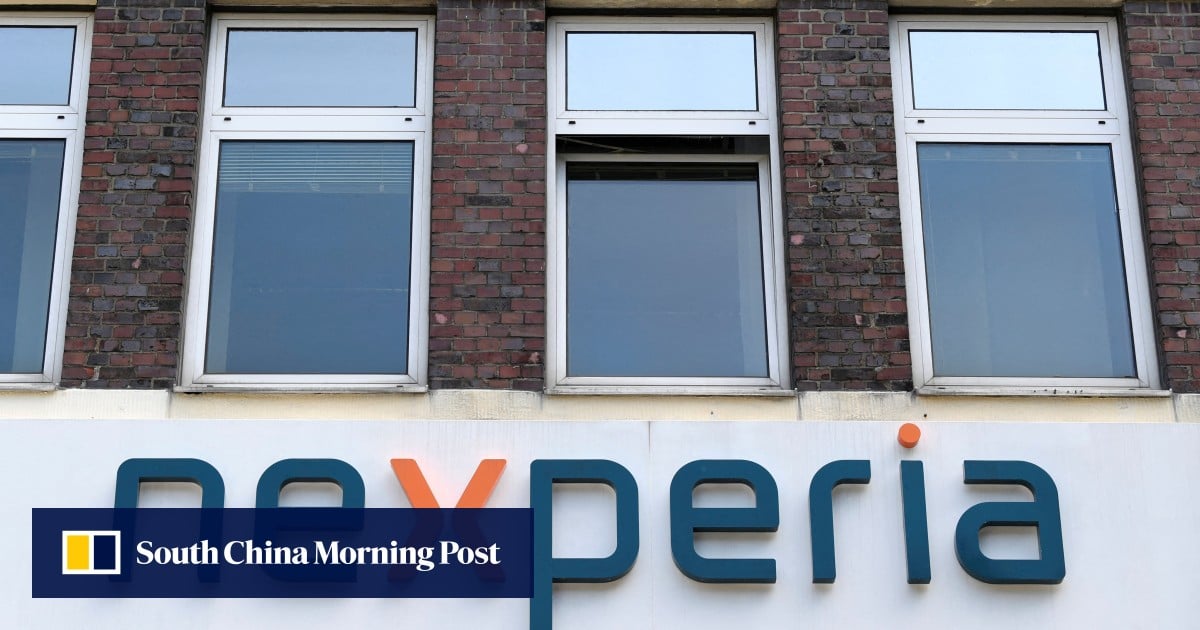When not alienating America’s closest trading partners, threatening to take over Greenland, Gaza and the Panama Canal, slapping China with tariffs and decimating the US$40 billion foreign aid programme, US President Donald Trump has targeted the United Nations – handing Beijing a unique opportunity to greatly expand its global reach as it assumes the month-long Security Council presidency.
“I’ve always felt that the UN has tremendous potential,” Trump said as, with great flourish, he signed an executive order on February 4 to review all contributions and US ties to the UN. “It’s not living up to that potential … They’ve got to get their act together.”
While UN bloat and mismanagement are no secret, Trump’s delight in running roughshod over institutions and well-crafted policy threatens to undermine decades of US “soft power”, the ability to convince rather than coerce other countries.
Do you have questions about the biggest topics and trends from around the world? Get the answers with SCMP Knowledge, our new platform of curated content with explainers, FAQs, analyses and infographics brought to you by our award-winning team.
Within days of returning to power, Trump announced Washington’s withdrawal from the UN World Health Organization (WHO); the Paris Agreement on climate; the UN Human Rights Council (UNHRC); the UN Relief and Works Agency supporting Palestinian refugees; and the UN-inspired International Criminal Court (ICC) – as well as put the UN Educational, Scientific and Cultural Organization (Unesco) on notice.
Quick to seize the moment, Beijing highlighted its support for the UN during its Security Council presidency in February and dispatching Foreign Minister Wang Yi to New York on Tuesday to reinforce the message.
“It is important for all countries to support the multilateral system with the United Nations at its centre,” Wang said, slamming “the law of the jungle” in a knock at Washington.
China’s long-standing multilateralism rhetoric has gained new traction even among traditional US allies, analysts said – less because of any shift in Beijing’s often muscular policies than Trump’s heavy-handed reboot.
“China doesn’t have to do anything to look like the good guy,” said Jeremy Chan, a Eurasia Group senior analyst. “All China has to do is come to the presidency, defend it and come out with some platitudes. And the US will be conspicuous in its absence.”
While the US staged a UN retreat and undercut close allies during Trump’s first term, he faced more Congressional resistance and shifts unfolded slowly.
This time, Trump has been far more aggressive, bolstered by the gutting of US Agency for International Development operations in 130 countries.
And there could be more to come. Brett Schaefer, a senior fellow with the conservative American Enterprise Institute, believes Washington should also walk away from the UN System Staff College, UN University, UN Office for Project Services and several regional economic commissions, among others.
“If no clear interest is served, the US should not be engaged, regardless of whether China has influence,” he added.
Washington’s pullback gives Beijing a historic opportunity to advance its agenda.
“Beijing is likely to sweep into the vacuum with ‘development’ projects that not only leave countries dependent on China but that also contains authoritarian ideals, such as extensive state control,” said Rana Siu Inboden, a senior fellow with the University of Texas at Austin’s Strauss Centre and formerly a diplomat with the US consulate in Shanghai.
Chinese Foreign Minister Wang Yi with UN Secretary-General Antonio Guterres after chairing a Security Council high-level meeting in New York on Tuesday. Photo: Xinhua alt=Chinese Foreign Minister Wang Yi with UN Secretary-General Antonio Guterres after chairing a Security Council high-level meeting in New York on Tuesday. Photo: Xinhua>
Opportunities that China is well positioned to seize include: bolstering UN links to Beijing’s Global Development and Belt and Road Initiatives as well as building support for its global security, civilisation and health proposals that, critics say, strengthen China’ influence in the Global South.
Another ripe target is increasing the diplomatic isolation of Taiwan. Two-thirds of the 193 UN member states have endorsed Chinese sovereignty over self-governing Taiwan, including 89 that support Beijing’s bid for “national reunification” without specifying that any transition is peaceful, according to the Lowy Institute in Australia.
“Beijing is winning without fighting,” it found, adding that China’s patience, pressure tactics and successful diplomatic strategy “could be a prelude to war”.
Beijing sees Taiwan as part of China, to be reunited by force if necessary. The US, like most countries, does not recognise the self-ruled island as an independent state. But Washington maintains robust unofficial ties with Taipei, has opposed any attempt to take it by force and is committed to supplying it with weapons, angering Beijing.
US withdrawal from the UNHRC, meanwhile, could embolden China’s bid to redefine human rights as a “win-win” societal aspiration that precludes calling out individual countries.
“We will see a cementing of the Chinese/developing country/Asian values view of what the UN human rights system is,” said Marc Limon, executive director of Universal Rights Group, a Geneva-based civic organisation. “Less naming and shaming, more focus on cooperation and dialogue.”
This could see the UN reframe the Uygur detention camps it has identified in Xinjiang as part of benign retraining and anti-terrorist efforts, not racial discrimination, said Rosemary Foot, an international relations professor at the University of Oxford.
“Xi Jinping believes China has a good story to tell, and a good place to tell it is the UN,” she said of the Chinese president.
During Trump’s more measured withdrawal from the UN in his first term, China opted to advance selectively.
Among Beijing’s biggest wins was its successful candidacy to head the UN Food and Agriculture Organisation – long considered a US preserve – amid reports of clumsy Washington diplomacy, Western infighting and Beijing arm-twisting and lavish spending for votes.
China also successfully framed itself as a global climate champion, despite being the world’s largest emitter of greenhouse gasses.
Eight years later, Trump’s more radical agenda and populism’s global spread have made China’s stable, if not always ideal, policies increasingly attractive. And even if Washington reverts to more conventional foreign policies after Trump’s tenure ends, the quitting and rejoining UN agencies has governments reeling and US credibility battered.
“We really are seeing a realignment,” said Limon. “I wouldn’t take it as far as the fall of the American empire. But we’re teetering on the brink.”
Even so, filling the vacuum would involve potential pitfalls for Beijing, analysts said.
Even as it partially withdraws, Washington is unlikely to abandon the UN completely given its desire to defend Israel and counter Chinese influence, which has played out in recent confirmation hearings and tussles over Afghan influence.
The often blunt Trump administration might, for example, highlight China’s crackdowns on Hong Kong or Christians, or Beijing’s massive trade surpluses and South China Sea chest-thumping, unwelcome attention for a Chinese government inclined toward shadow diplomacy.
“While the Trump administration’s stance toward the UN does create openings for China to boost its influence in New York and Geneva, it also creates headaches,” said Richard Gowan, the International Crisis Group’s UN director.
“Despite disowning parts of the multilateral system, the US is still likely to use the UN as a platform to criticise China in public.”
Another Chinese concern: as US purse strings tighten, Beijing will face more pressure to spend.

Wang Yi chairing the UN Security Council’s high-level meeting on “practising multilateralism, reforming and improving global governance” on Tuesday. Photo: Xinhua alt=Wang Yi chairing the UN Security Council’s high-level meeting on “practising multilateralism, reforming and improving global governance” on Tuesday. Photo: Xinhua>
Beijing now funds 20 per cent of the UN’s regular budget, close to Washington’s 22 per cent. But the US spends far more on specialised UN agencies, contributing US$4.5 billion to the World Food Programme last year, for instance, more than 400 times China’s US$11 million, which was roughly Burundi’s share.
Finally, China may not want the increased leadership on offer. Beijing has showed reluctance to replace Washington as global steward and policeman despite its long-standing criticism of US hegemony, analysts said, and is likely to face more calls to lead, rather than merely voice multilateralism slogans.
“It is not clear that China actually wants to invest the political and financial resources necessary to take a leadership role in those UN agencies the US rejects,” Gowan said.
In its bid to reinterpret the UN in its image while chipping away at US power, China has pursued a dual strategy, analysts said: appear globally responsible and needle the US without attracting undue attention or angering Trump, particularly while he is distracted by Gaza and Ukraine.
Thus Beijing has avoided promoting issues too aggressively during its Security Council presidency that would poke Washington in the eye. These include: “connectivity” as Washington severs global connections willy-nilly; “territorial interference” with both Panama and Denmark, which oversees Greenland, on the council; UN spending, highlighting Washington’s long history of arrears; and aid to Palestinians as the US departs UNRWA, ships heavy weapons to Israel and proposes resorts in Gaza.
Beijing has also been far less antagonistic in touting multilateralism than during Trump 1.0 when it strove to weaken US-European ties.
Some of this reflects its diminished geopolitical position. China’s industrial overcapacity and massive trade surpluses have rattled countries worldwide. Europe is more wary than eight years ago given China’s e-vehicle onslaught in the EU market and pro-Russia stance on Ukraine. And China’s economy is swooning as America’s roars ahead.
But it is also strategic, seen in how it pulls its punches, analysts said.
Eight years ago, Sourabh Gupta, a senior fellow at the Institute for China-America Studies, recalled, Beijing hammered home its global benefactor credentials with Xi’s high-profile speech at the Davos annual economic conference. This year he stayed home.
There’s little upside for China in attracting attention if Trump is looking elsewhere, said Gupta, especially while the mercurial US president is focused on possible peace deals in Gaza and Ukraine.
“Trump has not poisoned the well. They will not poison the well,” he added.
Washington has also exhibited restraint so far, at least in advance of a possible Xi-Trump summit the US president reportedly wants.
While Trump threatened 25 per cent tariffs on Canada and Mexico, he levelled relatively mild 10 per cent tariffs on China, well below the 60 per cent levels he first vowed during his presidential campaign.
And his UN ambassador, Elise Stefanik, was tough but relatively restrained during her confirmation hearings, opting not to hammer Beijing over crackdowns in Xinjiang, Tibet or Hong Kong.
“So far so good between Trump and Beijing, but a lot of events and strategies still have to unfold,” said Rorry Daniels, managing director of the Asia Society Policy Institute.
“All the irritants remain, lying latent in the system, and could flare up at any point if President Trump feels Beijing is insincere or stalling his agenda.”
Also yet to play out is how fully the international community embraces Beijing’s approach and UN initiatives. “China’s vision may be seen as second best to some of the classic tenets of American multilateralism,” she added. “But a vision is better than no vision.”
This article originally appeared in the South China Morning Post (SCMP), the most authoritative voice reporting on China and Asia for more than a century. For more SCMP stories, please explore the SCMP app or visit the SCMP’s Facebook and Twitter pages. Copyright © 2025 South China Morning Post Publishers Ltd. All rights reserved.
Copyright (c) 2025. South China Morning Post Publishers Ltd. All rights reserved.


